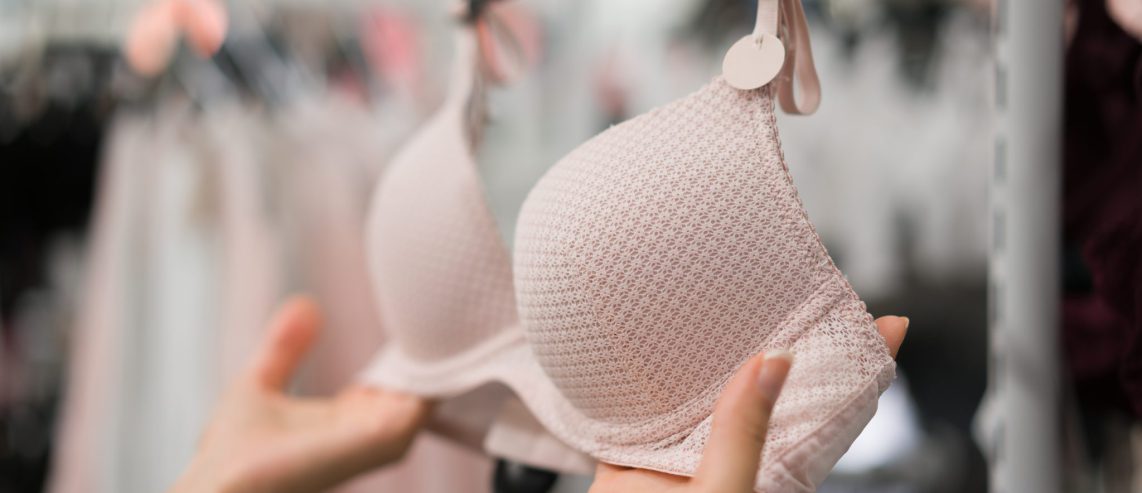During menopause, you might expect hot flashes, weight gain, and mood swings. One symptom you may not have anticipated? Urinary incontinence, or bladder leaks.
Menopause urinary incontinence is common. But that doesn’t mean you have to suffer silently through it. Here’s a look at what causes incontinence during menopause, and how to treat it.
Does Menopause Cause Incontinence?
The hormonal changes of menopause often contribute to bladder problems. Here’s why.
Menopause happens when your ovaries no longer produce an egg every month and menstruation stops. Officially, menopause is 12 months after your last menstrual period. But symptoms of menopause may occur for years before that, during the time doctors call perimenopause.
During perimenopause and menopause, your ovaries produce less and less estrogen. Estrogen is a hormone that is essential during puberty and pregnancy. It controls your menstrual cycle and helps keep your bladder and pelvic floor strong.
When estrogen production decreases, several things happen.
- The lining of your urethra (the tube that passes urine out of the body) becomes thinner, making it weaker.
- Your pelvic floor muscles weaken.
- Your vagina becomes dryer, thinner, and less elastic.
All these changes increase your risk of bladder leaks.
Never Miss a Beat!
Subscribe to Our HealthBeat Newsletter!
Thank you for subscribing!
You can now select the specific newsletters you'd like to receive.
You are already subscribed.
Subscribe to more newsletters in our email preference center.
Sorry, an error occurred. Please try again later.
Get Healthy Tips Sent to Your Phone!
Other Risk Factors for Incontinence
Menopause adds to your chances of developing incontinence, but it isn’t the only reason for bladder leaks. Other risk factors include:
- Being overweight — carrying extra pounds puts extra pressure on the bladder. And the added weight can eventually weaken your pelvic muscles.
- Childbirth — your pelvic floor may already be weak or damaged from giving birth. If you had a difficult labor or delivery, or multiple pregnancies, your pelvic floor had more stress.
- Eating certain foods — some foods irritate the bladder and increase the possibility of leaks. Spicy, sugary, or acidic foods can be culprits. Drinks with caffeine and alcohol can aggravate the bladder as well.
- Medications — some antidepressants and pain medicines can affect your bladder and lead to more leaks.
- Nerve damage— some diseases that cause nerve damage can trigger urinary incontinence. These conditions include diabetes, multiple sclerosis, and Parkinson’s disease.
- Pelvic organ prolapse —pelvic organs (the bladder, rectum, or uterus) can shift out of place and push into the vagina or anus. When this occurs, the bladder and urethra can’t function properly and may cause urine to leak.
- Urinary tract infections (UTIs) — frequent UTIs weaken the muscles of your urinary tract and lead to incontinence.
Types of Incontinence in Older Women
There are two different types of menopause urinary incontinence. You may have more than one at a time (mixed incontinence).
- Stress incontinence —happens when there is physical stress on the bladder. You may leak urine when you cough, sneeze, laugh, or move suddenly.
- Urge incontinence — sometimes called “overactive bladder.” It happens when your brain tells your bladder to empty, even when it’s not full. You have a strong, sudden urge to pee and might not make it to the bathroom in time.
When You Should See a Doctor About Bladder Leaks
You should see your doctor when:
- Incontinence is interfering with work or family life.
- You feel you always need to be near a restroom.
- You’re missing out on social activities or hobbies you enjoy because you fear urine leaks.
- You’re waking up several times a night to go to the bathroom.
You can see your primary care doctor for incontinence. They may refer you to a urologist, OB/GYN, or urogynecologist. A urogynecologist is a doctor who specializes in disorders of the pelvic floor.
There’s no need to feel embarrassed about bladder leaks. It’s important to speak up and get treatment. These specialists deal with incontinence every day.
Your doctor will ask you about your symptoms and medical history. They may ask you to keep a diary for a few days to keep track of when you pee and when you leak urine. Your doctor may want to run the following tests:
- Bladder stress test — you cough or push down on pelvic muscles to see if you have urine leaks.
- Cystoscopy — a thin tube with a tiny camera goes into your urethra and bladder to look for damage.
- Ultrasound —lets doctors see if a blockage in your urinary tract is causing leaks.
- Urine test — for lab workers to check for infections or other problems in your urinary tract.
- Urodynamic testing — your doctor inserts a tube into your bladder and fills it with water. They can then measure the pressure in your bladder to see how much fluid it can hold.
How to Improve Bladder Control
Just because you’re getting older doesn’t mean you should accept bladder leaks as a way of life. Although urinary incontinence is common, it’s not a normal part of aging. There are many treatments and therapies that can help you gain control of your bladder.
Your doctor may suggest one or more of the following to help control leaks.
- Electrical stimulation — a physical therapist uses an electrical device to help activate pelvic floor muscles.
- Hormone therapy — boosting your estrogen levels may help with incontinence. An estrogen patch or vaginal cream may help strengthen your pelvic floor.
- Medications — your doctor may recommend a medication to help control leaks. These drugs help calm the nerves that tell your bladder to release urine.
- Pelvic floor therapy — Kegel exercises can help tighten and strengthen the pelvic floor. You repeatedly tighten and release the pelvic floor muscles for a few seconds at a time. You’ll eventually work up to 10 sets of Kegels, three times a day.
- Pessary — this device helps hold the bladder in place. It’s especially helpful if you suffer from pelvic organ prolapse.
- Surgery — as a last resort, your doctor may recommend a surgical procedure to help support your bladder and urethra.
It’s important to talk to your doctor about your specific symptoms and lifestyle. Together you can come up with treatment options that will work best for you.
Sources
National Library of Medicine, Urinary incontinence in postmenopausal women — causes, symptoms, treatment, Link
The North American Menopause Society, Urinary Incontinence, Link
National Institute on Aging, Urinary Incontinence in Older Adults, Link
U.S. Department of Health & Human Services, Office on Women’s Health, Urinary Incontinence, Link
Urology Care Foundation, Urinary Incontinence, Link
About UPMC Magee-Womens
Built upon our flagship, UPMC Magee-Womens Hospital in Pittsburgh, and its century-plus history of providing high-quality medical care for people at all stages of life, UPMC Magee-Womens is nationally renowned for its outstanding care for women and their families.
Our Magee-Womens network – from women’s imaging centers and specialty care to outpatient and hospital-based services – provides care throughout Pennsylvania, so the help you need is always close to home. More than 25,000 babies are born at our network hospitals each year, with 10,000 of those babies born at UPMC Magee in Pittsburgh, home to one of the largest NICUs in the country. The Department of Health and Human Services recognizes Magee in Pittsburgh as a National Center of Excellence in Women’s Health; U.S. News & World Report ranks Magee nationally in gynecology. The Magee-Womens Research Institute was the first and is the largest research institute in the U.S. devoted exclusively to women’s health and reproductive biology, with locations in Pittsburgh and Erie.

